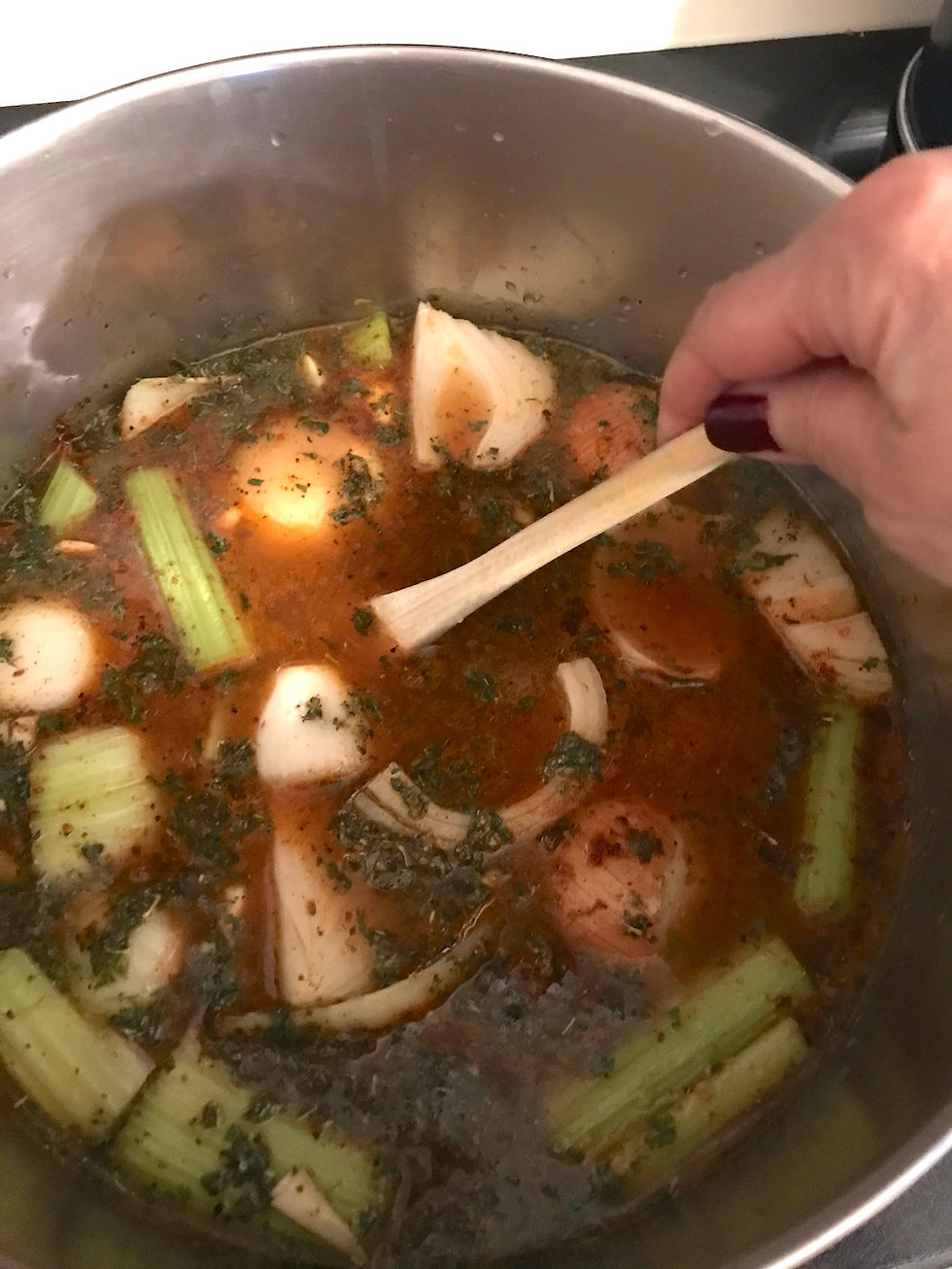This old-world recipe is filled with beefy goodness and childhood memories.

It’s National Soup Month, and I’m tickled to share with you one of my Mom’s signature dishes: gashtel soup featuring homemade beef broth and tiny dumplings.
Americans love soup. According to Statista, 48 percent of Americans consume soup as part of their dinner. Boiling ingredients in a pot is an ancient cooking method that’s been adopted across many cultures. A contributor for ehow.com several years ago dove into the history of soup; if you’re thirsty for more, dig in.
If you simply want a wonderful, old-world recipe for a completely satisfying soup that my mother frequently made, you’ve come to the right place.
I like to think it was her Austrian-Hungarian background that inspired Mom to make us gashtel soup. What are gashtels you ask? A German-Russian dictionary defines them as tiny dumplings. Hungarians refer to them as reszelt teszta (shredded noodles). Whatever translation you choose, you won’t be able to buy them in a store, and making them is a labor of love—probably similar to Italian Nonnas making pasta by hand.
As a kid, it was an occasion when Mom made gashtel soup. Maybe somebody had a cold, and you’d hear “go ahead eat this; it’s good for what ails you.” Sometimes, I think she made it simply to say “I love you.” That’s certainly the emotions and memories that are evoked when I eat this soup. Mom’s recipe used a rich beef broth to pair with the gashtels, but I’ve also seen recipes using chicken broth. I guess either would work, but I’m sticking with our family’s tradition.
And if you make this soup, please start by making a homemade broth. It’s really not much work, and the depth of flavor in the broth is superior to anything out of a box. Remember, it’s broth and gashtels—that’s it—so use the best ingredients for great results.

For a beef broth, roast the soup bones or short ribs (I used the latter) in the oven before adding to the stock pot. Then you simply hack up carrots, celery, and onions—don’t peel vegetables—before adding water and spices. Then it simmers on the stove 4 to 5 hours while you go about your business around the house. And the aroma that fills the kitchen, well, it transports me to the house I grew up in, and in my mind’s eye, I see Mom at the her avocado-green stove, apron on, stirring the soup pot.
Making the stock is the easy part to this recipe. The gashtels, I’ll be honest, are little devils. The dough has to be very stiff in order to grate by hand on a box grater. So, you may have to experiment to get the right consistency because a soft, pliable dough simply won’t grate.

Generally, the rule of thumb is an egg to a cup of flour for the dough. That’s it, although I also added a pinch of salt. If you’re using large or extra-large eggs, I’d probably start with 1 1/4 cup of flour. But as you knead the dough, keep adding a bit of flour as required to make it stiff. If you’re having trouble getting the dough to come together at all, add a few drops of water. Each time I wrestle with these stinkers, I gain new respect for Mom and the time it took to dry several towels filled with gashtels. But then, knowing her, she likely thought, "If I have to go through this (expletive), I'm making enough to use more than once!"
Use the side of the box grater with the large holes and carefully drag the dough ball along the grater. Gashtels will be in various sizes, some the size of small peas, others will be longer. All will need to dry for several hours on a clean towel before adding them to the soup.

When it’s time to bring the soup together, strain the vegetables, bones, and bay leaves from the broth. I like to put the the stock in the refrigerator overnight to make it easier to skim the fat. Bring the strained broth to a gentle boil and add the dried gashtels, cooking them for 8 minutes (until tender).
Mom was always generous with the gashtels, so of course I’d go that route as well. I used 2 large eggs and nearly 3 cups of flour, which created enough gashtels to spread out and cover the surface of a kitchen towel. I’ll likely use these with half the broth I made, freezing the rest of the stock for another soup.
I hope you’ll give this soup a try. It's definitely worth the labor! The gashtels have a satisfying chew to them, and together with the beef broth, it’s comfort and love in a bowl.

I remember back in the day I made my own egg noodles, so I'm thinking the dumpling dough would be similar. I'm going to plan a day to make this! I sounds delicious and a fun thing to do on a cold, cloudy day - preferably with snow falling!